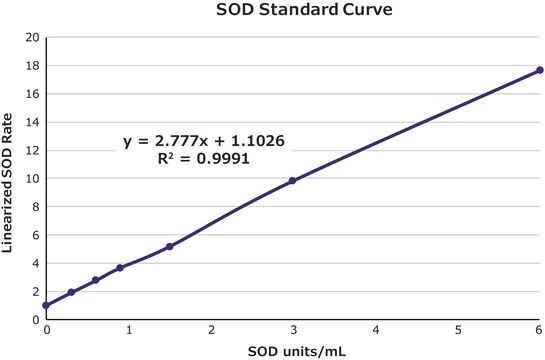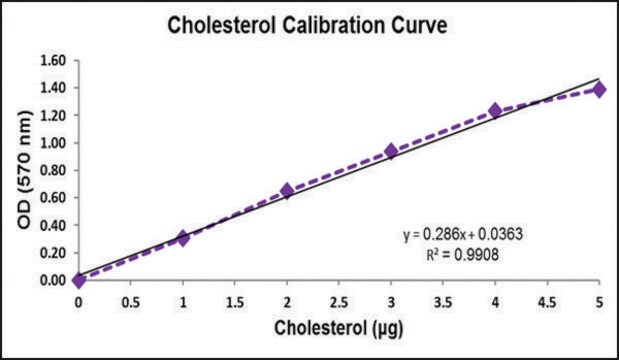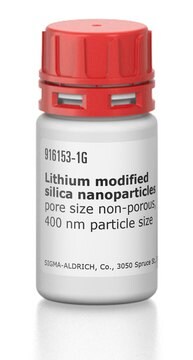CS1000
Superoxide Anion Assay Kit
sufficient for 100 assays (96 well plates)
Synonyme(s) :
Superoxide Detection Kit
Se connecterpour consulter vos tarifs contractuels et ceux de votre entreprise/organisme
About This Item
Code UNSPSC :
12161503
Nomenclature NACRES :
NA.84
Produits recommandés
Utilisation
sufficient for 100 assays (96 well plates)
Niveau de qualité
Conditions d'expédition
wet ice
Température de stockage
2-8°C
Application
The Superoxide Anion assay kit provides a useful qualitative cell-based assay for the measurement of O2− anion status in cells. The kit can be used to test changes in superoxide anion levels following oxidative stress directly in whole cells. In addition, the kit can be also used for the detection of superoxide dismutase (SOD) activity. This activity was tested on erythrocytes, leucocytes, and plasma.
Actions biochimiques/physiologiques
The superoxide anion (O2-) is a short-lived radical generated by the addition of an electron to oxygen. It is formed in response to environmental factors such as UV light, cigarette smoke, environmental pollutants, and γ-radiation, or by oxidases like xanthine oxidase or NADPH oxidase. Once formed, O2- attacks cellular components causing damage to lipids, proteins, and DNA. This can initiate numerous diseases, including cancer, atherosclerosis, rheumatoid arthritis, diabetes, liver damage, and central nervous system disorders.
Remarque sur l'analyse
The kit method is based on the oxidation of luminol by superoxide anions resulting in the formation of chemiluminescence light. This method utilizes a specific, non-toxic enhancer that amplifies the chemiluminescent signal.
Composants de kit seuls
Réf. du produit
Description
- Assay Buffer 25 mL
- Assay Medium 20 mL
- Enhancer Solution, 40 mM 500 μL
- Luminol Solution 500 μL
- Xanthine Solution 500 μL
- Xanthine Oxidase .5 U
- Superoxide Dismutase from bovine liver, 4 units/μL 400 U
Code de la classe de stockage
10 - Combustible liquids
Certificats d'analyse (COA)
Recherchez un Certificats d'analyse (COA) en saisissant le numéro de lot du produit. Les numéros de lot figurent sur l'étiquette du produit après les mots "Lot" ou "Batch".
Déjà en possession de ce produit ?
Retrouvez la documentation relative aux produits que vous avez récemment achetés dans la Bibliothèque de documents.
Les clients ont également consulté
Muthusamy V Shanmuganathan et al.
Microbes and infection, 16(2), 134-141 (2013-10-29)
Macrophages serve as permissive niches for Escherichia coli (E. coli) K1 to attain high grade bacteremia in the pathogenesis of meningitis in neonates. Although pterin levels are a diagnostic marker for immune activation, the role of macrophages in pterin production
Erythropoietin activates nitric oxide synthase in murine erythrocytes
Mihov,D et al.
The American Journal of Physiology, 279(2), C378-C388 (2009)
Wen-Bin Zhang et al.
Oxidative medicine and cellular longevity, 2021, 6610543-6610543 (2021-02-06)
Doxorubicin- (DOX-) related cardiac injury impairs the life quality of patients with cancer. This largely limited the clinical use of DOX. It is of great significance to find a novel strategy to reduce DOX-related cardiac injury. Oroxylin A (OA) has
Kyoung Ah Kang et al.
Redox biology, 37, 101698-101698 (2020-08-31)
We have previously shown that non-thermal dielectric-barrier discharge (DBD) plasma induces the generation of reactive oxygen species (ROS) in cells; however, the underlying mechanism has not been elucidated. This study aimed to identify the mechanisms through which DBD plasma induces
Hannah Watson et al.
The Journal of experimental biology, 221(Pt 13) (2018-05-12)
In oviparous animals, maternally transferred antioxidants protect the embryo from oxidative damage from high rates of reactive oxygen species (ROS) production incurred by rapid growth. Elevated ROS exposure, beyond that incurred by normal growth, can occur as a result of
Notre équipe de scientifiques dispose d'une expérience dans tous les secteurs de la recherche, notamment en sciences de la vie, science des matériaux, synthèse chimique, chromatographie, analyse et dans de nombreux autres domaines..
Contacter notre Service technique




